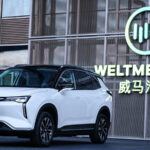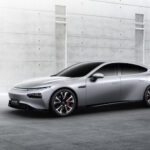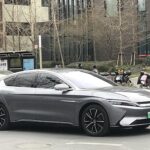Chinese Automakers’ Technology Going Global: A New Era of Tech Export
As China’s domestic automotive market witnesses a reciprocal exchange of technology with multinational car manufacturers, the concept of “technology going global” is emerging as a new trend. While Chinese carmakers are benefiting from collaborations within their home market, they’re also beginning to export their innovative technologies to international players. This recent development signifies a shift in the way Chinese automakers are positioning themselves globally.
A prime example of this trend is the joint venture agreement between Geely and Renault Group. The companies will each hold a 50% stake in a new joint venture focusing on power battery technology, aiming to establish a global business footprint. Similarly, Leapmotor has been in talks with two overseas car manufacturers for potential technology collaboration, indicating a willingness to license their technology to foreign companies. Additionally, the now-dissolved partnership between CATL and Ford illustrates how Chinese new energy vehicle (NEV) technology is stepping onto the world stage.
However, experts emphasize that while the trend of “technology export” is gaining traction, it might not immediately become the norm. Wang Qing, Deputy Director of the Market Economy Research Institute at the Development Research Center of the State Council, believes that more collaborations will likely continue to take place within the domestic market. The foundation for exporting technology will be built upon the establishment of trust, mature supply chain systems, and successful partnership models in the domestic arena.
Recent instances of Chinese and foreign carmaker collaborations have garnered attention. Volkswagen’s acquisition of a 4.99% stake in Xpeng, SAIC Group’s memorandum of understanding with Audi for accelerated electric vehicle development, and Changan Ford’s takeover of Ford’s electric Mustang Mach-E operations in China are noteworthy examples.
Geely’s partnership with Renault stands out. The companies established a joint venture for powertrain development, transferring related intellectual property to operational centers in Madrid and Hangzhou Bay. The joint venture aims to autonomously develop future powertrain technology, catering to various market demands. This initiative will see the establishment of a headquarters in the UK, five R&D centers, and 17 factories across Europe, Asia, and South America.
The emphasis on collaborations and technology exports is driven by various factors. China’s NEV industry’s increasing competitiveness and a desire to expand into larger markets are motivating Chinese automakers. A growing demand for mature supply chains, cost-effective manufacturing, and efficient market penetration is also spurring collaborations. The development of a comprehensive ecosystem in China’s NEV industry, covering aspects like power batteries, control systems, operating systems, AI, and charging infrastructure, enhances its attractiveness to foreign partners.
It is becoming evident that Chinese automakers are embracing a new era of technology export. While the practice might not replace domestic collaborations in the short term, it opens doors to a more diversified approach to global expansion. As the global automotive landscape continues to evolve, China’s technology prowess is positioning its automakers on a more prominent stage.





